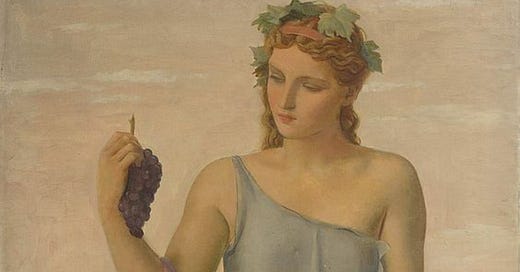Perhaps today you will feel it, something both strange and enchanting, the usual rhythm of your day disturbed in the slightest degree. It happened to me one June twenty-first years ago and ever since, like clockwork the feeling has come, a strange visitor arriving to usher in the season.
You had only to rise, lean from your window, and know that this indeed was the first real time of freedom and living, this was the first morning of summer.1
Keep reading with a 7-day free trial
Subscribe to Girls on the Page to keep reading this post and get 7 days of free access to the full post archives.




